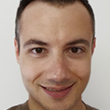About this course
Computing is a science. It’s an art, at least for those who practice it well, and it still retains much of its magic.
Part 1 of this course introduced the fundamental concepts, preparing you for the more advanced topics covered in this course!
Throughout this course, you will learn programming concepts and techniques, and practice them immediately through advanced browser-based tools that let you write programs, compile, run and test them against predefined test sets. You will see your results right away in your browser!
In this Part 2, we will discuss:
- A major programming technique, inheritance, including Multiple inheritance: combining complementary abstractions
- Selective exports for solid modular design of large systems
- Functional programming with agents: going one level of abstraction higher or more
- Concurrency: how to build applications that, so to speak, walk and chew gum at the same time
- Design patterns: how you can benefit from the best architectural practices of the industry, ironed out over many decades
- What makes a loop do its job right, with the notion of loop invariant
- Important practical examples: how to write an interactive application with undo-redo, and the example of topological sort
- Software engineering-- the construction not just of individual programs but also of complex, ambitious software systems
Join us in this computing and programming course to better understand the power and beauty of modern computer programming.
What you'll learn
- A basic understanding of the fields of IT and computer science
- The core concepts of computing and programming
- Techniques for writing correct and reliable object-oriented programs
- The Eiffel object-oriented programming language and notation
- A glimpse of theoretical computer science
Course Staff
Bertrand Meyer
Bertrand Meyer, formerly from ETH Zurich, is a professor at Politecnico di Milano and Innopolis University, and Chief Architect at Eiffel Software. He is an authority in software engineering, programming languages and object-oriented programming. He is particularly known for his books, which have exerted a profound influence on the evolution of programming, and for his introduction of the concepts of Design by Contract.
Marco Piccioni
Marco Piccioni has been a postdoctoral researcher at the Chair of Software Engineering, ETH Zurich. After having received a Ph.D. from ETH for his work on API usability, persistence, and object-oriented class schema evolution, his research interests are now focused on online education, and MOOCs in particular. Previously he worked for Sistemi Informativi S.p.A. (an IBM company) for ten years as a technical trainer and software developer. He has a Laurea degree in Mathematics from Università La Sapienza, Roma, and a Master degree in Economics from Università L. Bocconi, Milano.
Carlo A. Furia
Carlo A. Furia has been a senior researcher and lecturer in the Department of Computer Science of ETH Zurich. In his research he developed models, techniques, methods, and tools to support the analysis, rigorous development, and verification of software and systems. He has taught various courses on software engineering, programming languages, and verification at ETH Zurich. He has a PhD in Computer Science from the Politecnico di Milano.




